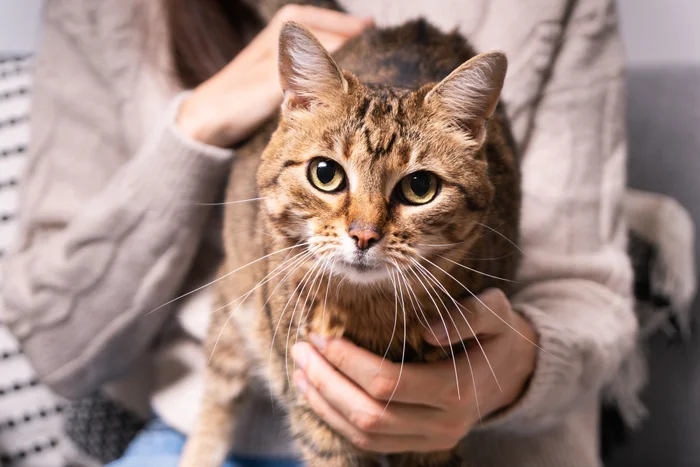


Why Does My Cat Run Around At Night?
written by Tori Holmes
For many cat owners, the sound of their feline friend darting around the house in the dead of night is a familiar one. This phenomenon, often referred to as "nighttime zoomies", can leave pet parents scratching their heads and wondering: Why does my cat run around at night? Let's delve into the reasons behind this behavior and explore some strategies for managing cats at night.
Why do cats get the nighttime zoomies?
As it turns out, there's more to those nighttime zoomies than just random bursts of energy – it's a mix of their instincts, indoor lifestyle, and emotional needs all coming into play.
● Instincts: Cats are crepuscular creatures, meaning they are most active during the dawn and dusk hours. This behavior is rooted in their evolutionary history as hunters – dawn and dusk are prime hunting times when prey animals are most active. Even though our domesticated felines no longer need to hunt for survival, their instincts to be active during these times remain strong.
● Boredom and pent-up energy: Indoor cats may experience nighttime hyperactivity due to boredom and a lack of physical exertion during the day. Cats are natural hunters and need opportunities to engage in play and exploration to satisfy these instincts. If they don't use enough of their energy during the day, they may become restless and more active at night.
● Stress and anxiety: Cats are sensitive creatures, and changes in their environment or routine can cause stress and anxiety. This can manifest as increased nighttime activity as they try to cope with their emotions or seek comfort and reassurance from their surroundings.
● Medical issues: In some cases, excessive nighttime activity may be a sign of an underlying medical issue such as hyperthyroidism. If your cat's nighttime behavior suddenly changes or becomes more extreme, it's essential to consult with your veterinarian to rule out any potential health problems.
Now that we have a better idea of what’s going on with cats at night, let’s take a closer look at what you can do to manage these nighttime zoomies.
By understanding the factors that contribute to nighttime zoomies, pet owners can implement strategies to help their feline companions enjoy a more peaceful and restful night.
● Stick to a regular feeding routine: Feeding your cat Freshpet meals at the same time each day doesn’t only satisfy their hunger. A consistent feeding schedule can also help regulate your cat's energy levels and promote better sleep habits, reducing the likelihood of nighttime hyperactivity. Ideally, your cat should have their last meal approximately 2-3 hours before bedtime so they have enough time to digest their food before settling down for the night.
● Establish a bedtime routine: Just like humans, cats can benefit from a bedtime routine that signals to them that it's time to wind down and prepare for sleep. About an hour before bedtime, engage in quiet, relaxing activities with your cat, such as gentle grooming or cuddling. Avoid stimulating activities, like vigorous play or feeding, close to bedtime as these can make your cat more alert and active when you're trying to encourage relaxation.
● Provide enrichment: You can keep your cat mentally and physically stimulated during the day by providing plenty of toys, scratching posts, climbing structures, and interactive play sessions. Puzzle feeders and food-dispensing toys can also help keep your cat entertained and mentally engaged – especially when they have to figure out how to access their favorite Freshpet recipe! Engaging your cat in active play sessions in the early evening can also help tire them out and reduce their urge to engage in nighttime zoomies.
● Create a calm environment: If you think that your cat’s nighttime zoomies are related to stress or anxiety, try to make your home a more soothing and relaxing environment, especially during the evening hours. Dim the lights, minimize any noise, and provide cozy hiding spots where your cat can relax and feel safe.
If your cat's nighttime hyperactivity persists or becomes disruptive to your sleep, consult with your veterinarian to rule out any underlying medical issues and discuss potential treatment options. Your vet may recommend behavior modification techniques, prescription medications, or other interventions to help manage your cat's nighttime behavior effectively.
While nighttime hyperactivity in cats can be puzzling, understanding why it happens and how you can manage it can help ensure a peaceful night for everyone.

Pet Wellness
Learn how Freshpet recipes benefit pets and pet parents.

freshpet recipes
It’s important that you can choose how to get Freshpet to your home. This is why we’re proud to offer three different ways for you to purchase our recipes.
















